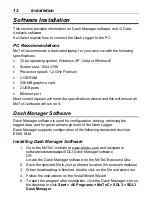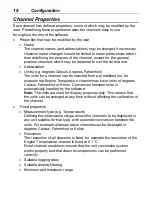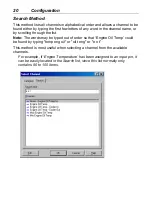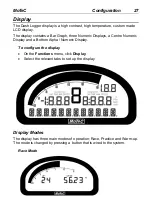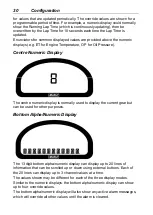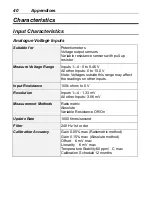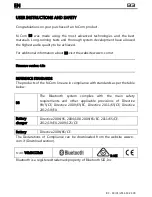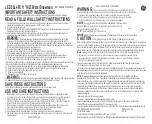
MoTeC
Configuration
25
The anti-alias filter is implemented by averaging the channel values between
logging events. For example, if a channel has an update rate of 1000 Hz and
it is logged at 100 Hz then the preceding 10 samples will be averaged each
time it is logged.
The anti-alias filter is normally turned on by default when a channel is added
to the logging list, but may be turned off if required. For normal purposes it is
recommended that the anti-alias filter is left turned on.
Note:
For some channels the anti-alias filter cannot be turned on because the
averaging performed by the filter would cause incorrect values. This is the
case for on/off channels and channels where the bit values have a particular
meaning, for example error group channels.
Real Time Value (ADL2, SDL)
For channels that come from an ADL2 or an SDL, the logging anti-alias
filter also affects the real-time value of the channel. This is the value that
all other parts of the system see, such as the various calculations.
Note:
The anti-alias filter is limited to 50 Hz for real time values even if the
channel is logged at a lower rate. For example, a channel logged at 10 Hz
will be filtered and updated at 10 Hz in the logging and 50 Hz for the real
time value.
Note:
Channels that are not logged are updated at 50 Hz.
Real Time Value (For devices other than ADL2, SDL)
The real time value from other devices and from internal calculations is not
anti-aliased at the logging rate, however the value can be anti-aliased in
the logging.
Phase Shift
The anti-alias filter will cause a phase shift (time delay) of half the logging
rate. For example, a channel logged at 100 Hz is logged every 10
milliseconds, so it is delayed by 5 milliseconds.
For most purposes this time delay is not an issue.
Channels logged at the same rate are delayed by the same amount, which
negates this effect when comparing these channels.
This applies to all channels whether they are generated internally from a
calculation or whether they are generated externally from devices such as
a display device.


